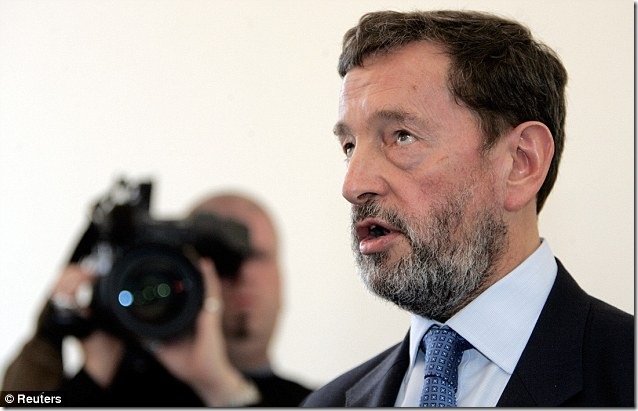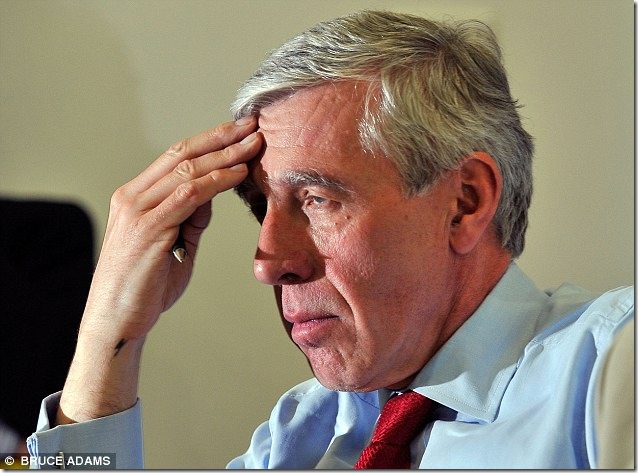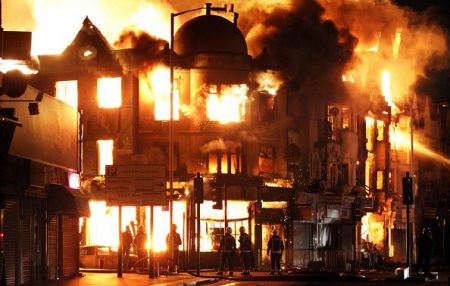Daily Mail
November 14, 2013

Anyone who relies on the BBC for news will probably be unaware that earlier this week a well-known politician uttered some of the most extraordinary remarks about immigration that have been made by a national figure in living memory.
But the politician who warned that ‘tensions’ between local people and Roma migrants could escalate into rioting unless action is taken was not from the far-Right, Ukip or even the Tory Party. No, these comments were made by David Blunkett, a former Labour Home Secretary and a very moderate man.
Ironically, in view of the fact that the BBC in London has virtually ignored the story, Mr Blunkett had originally confided his fears to BBC Sheffield, the city where he is an MP. He called on the Roma community in the Page Hall area of Sheffield to change aspects of their ‘behaviour’, such as congregating on the streets on summer evenings and dumping litter. These activities, he said, are ‘aggravating’ local people.
Mr Blunkett told BBC Sheffield: ‘We have got to be tough and robust in saying to people: “You are not living in a down-trodden village or woodland,” — because many of them don’t live in areas where there are toilets or refuse collection facilities.’
According to the former Home Secretary, the cultural gulf between the host community in Sheffield and the Roma one is far greater than that between white Britons and Pakistani immigrants.
And he derided official figures that suggest there are fewer than 50,000 Roma in England — citing a recent Salford University study which estimates that there are more than 200,000. The Government, he said, is ‘burying their head in the sand’.

If a Right-wing politician or newspaper had spoken in such terms, there would have been uproar, and opprobrium from many on the Left. Yet there has been silence. As a Labour MP, Mr Blunkett is allowed — just — to say things which a person on the Right would not be.
After all, given the murder of perhaps 200,000 Roma by the Nazis (the figure is contested), and their history as a persecuted people, any politician who suggests that they should do more to conform to local customs risks some pretty serious criticism.
But despite his evocative language, I am sure Mr Blunkett is in no sense a racist, and that he accurately describes the situation in the Page Hall area of Sheffield. Unlike many MPs, he is close to his constituents and their fears. He senses trouble and wants the Government to wake up before it is too late.
The irony is that Mr Blunkett is himself as responsible as anyone for the large number of Roma and other immigrants who have come from Eastern Europe in recent years. He was Home Secretary in 2004 when the Labour Government lifted controls on Eastern European migrants — one of the very few countries in the EU to do so.
At the time, Whitehall officials estimated that between 5,000 and 13,000 migrants would come to Britain every year. The total over nearly a decade was more than one million. These included many Roma from Slovakia, who now make up a large number of the Roma population in Britain.
Jack Straw — Mr Blunkett’s predecessor as Labour Home Secretary — has just admitted that it was a ‘spectacular mistake’ for Britain to throw open its doors in this way when most other European Union countries reserved their right to retain controls for a further seven years.
In other words, Mr Straw accepts, as Mr Blunkett appears also to do, that too many migrants — significantly more than half of them Poles — came here too quickly. Of course, many of them have made an enormous, sometimes indispensable, contribution to British life, but there have also been tensions of the sort Mr Blunkett so graphically describes.
